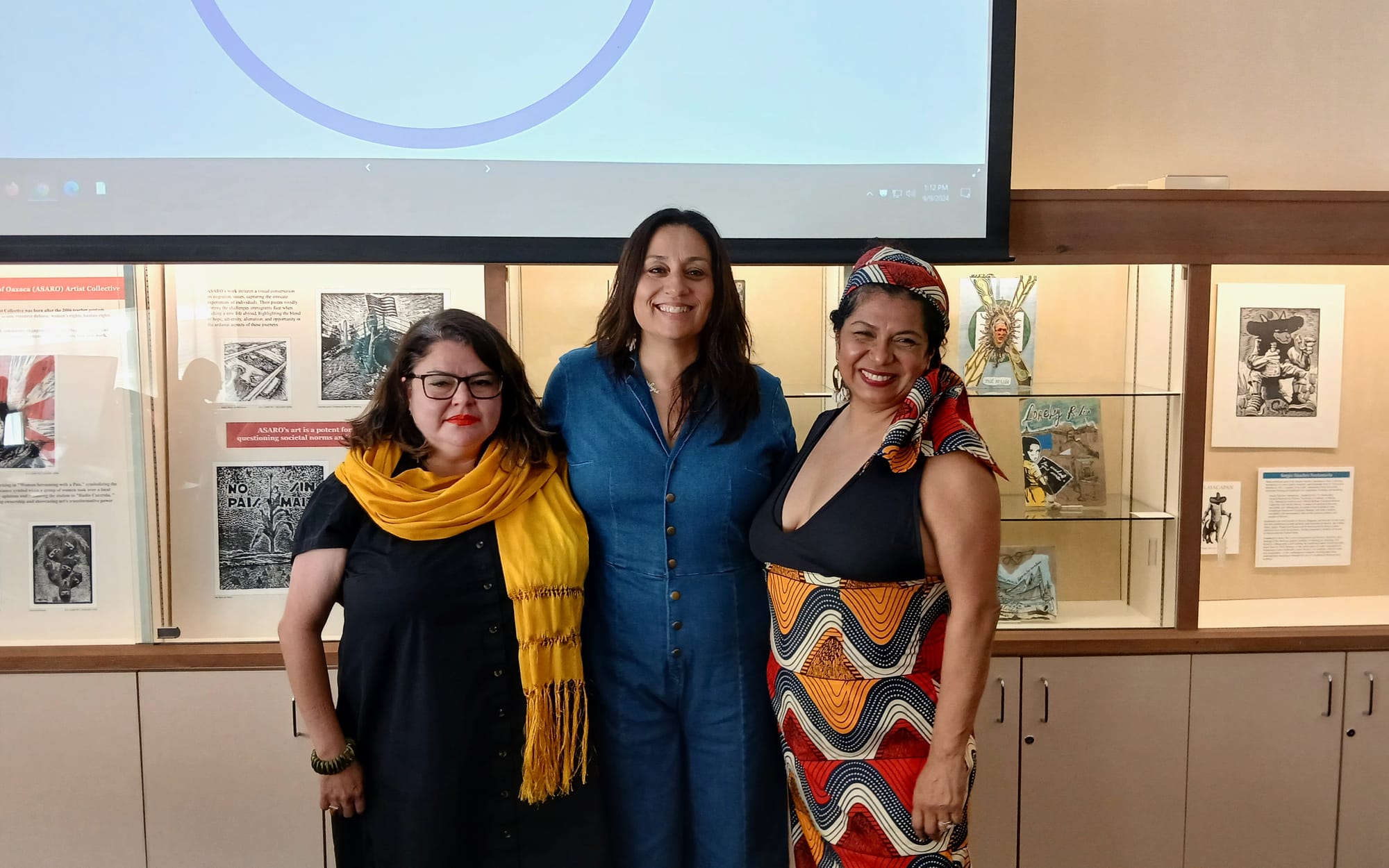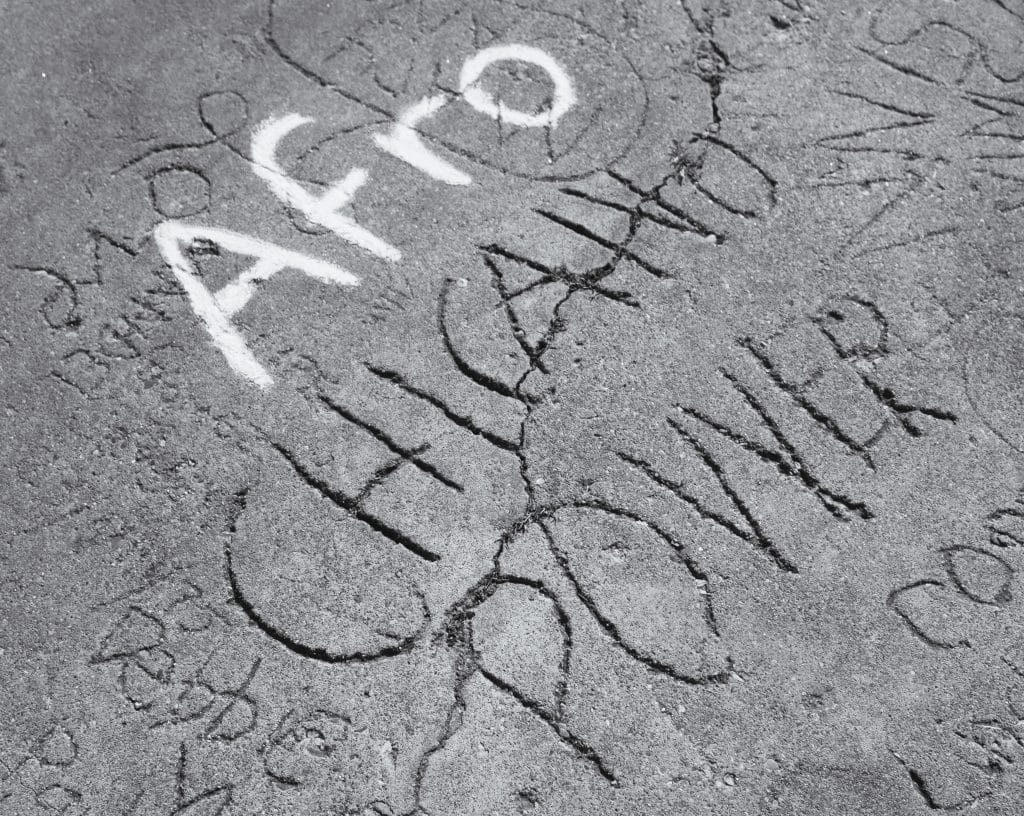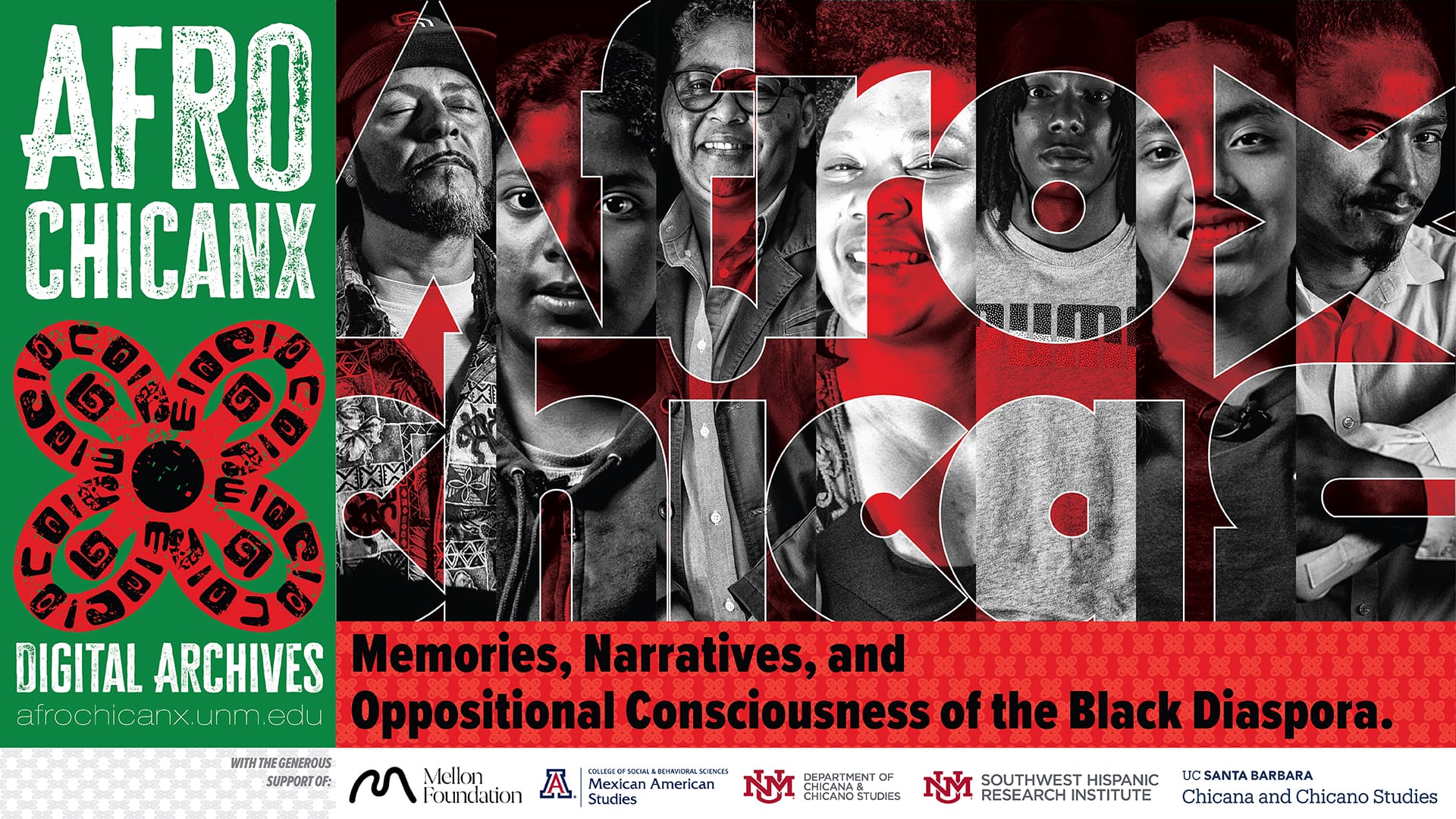Digitizing AfroChicanx Experiences: Project Archive Illuminates Marginalized Histories & Stories
Learn more about the cross-institutional, cross-regional collaborative research project AfroChicanx Digital Humanities Project: Memories, Narratives, and Oppositional Consciousness of Black Diasporas.

by Samantha Anne Carrillo
In the United States, Latinx and Chicanx Studies scholarship has largely focused on the colonial period while historically erasing Blackness. A new cross-institutional, cross-regional collaborative research project, AfroChicanx Digital Humanities Project: Memories, Narratives, and Oppositional Consciousness of Black Diasporas, explores, interrogates, and documents contemporary experiences of people who self-identify as Afro-Latina/o/x across the U.S./Mexico Borderlands.
Studying Black diasporas
On Sept. 9, 2023, project leads Dr. Doris Careaga-Coleman (University of New Mexico), Dr. Micaela J. Díaz-Sánchez (University of California, Santa Barbara), and Dr. Michelle Téllez (University of Arizona) gathered in UNM’s Zimmerman Library for a soft launch of the AfroChicanx Digital Humanities Project. Funded through the Mellon Foundation initiative Crossing Latinidades, project leads shared an overview of the project, including research methods and sites, and a preview of the digital archive that will be housed at UNM.
Centering marginalized histories
Grounded in the feminist praxis and research methodologies of its project leads, AfroChicanx Digital Humanities Project uses oral history and plática methods to center marginalized testimonies, experiences, and histories of community leaders, cultural practitioners, and transnational people of African descent in the U.S. and Mexico. The project’s overarching goal is to create a multilingual (English, Spanish) digital humanities archive with the potential to strengthen transnational and intergenerational relationships across geographies.

From Burque to Santa Barbara
Over the course of two years, Drs. Careaga-Coleman, Díaz-Sánchez, and Téllez organized and conducted interviews, including photo and video documentation, and workshops in Albuquerque, N.M., Santa Barbara, Calif., and Tucson, Ariz. Here in Albuquerque, the project hosted workshops and interviews at accessible community sites like La Plazita Institute, New Mexico Black Leadership Council (NMBLC), and the UNM Chicana/o Studies Casita.
Blackness within New Mexico
Careaga-Coleman, a tenure-track assistant professor of Chicana and Chicano Studies at UNM and a member of NMBLC’s Board of Directors, explains that her interest in the project originated within her family life. “From a personal perspective, I am Mexican and my husband is African-American so our kids are Afro-Mexican, Afro-Chicano. We started getting questions from them when they were little, around six years old,” said Careaga-Coleman. “I saw them navigating the world and looking for answers. In 2019, there was the constitutionalisation of Afro-Mexican identity in Mexico. In Chicanx Studies here in the U.S., I saw there wasn't much representation or study of Afro-Mexicans and recognized the need and importance of promoting that agenda within the academic space.”

Legacies of anti-Blackness
Alongside the project’s mandate to facilitate critical interdisciplinary conversations, researchers were attentive to the legacies of anti-Blackness in Latina/o/x and Chicana/o/x communities. In addition to documenting community workshops, family albums, oral histories, and portraits, the AfroChicanx Digital Humanities Project archive will house a syllabus of readings that span categories such as U.S. Southwest Racial Formations, Chicana Feminisms, Black Feminisms, Decolonial Thought, Transnational Black Diasporas, Afro Mexico/Southwest, Cultural Expressions, Racial and Ethnic Identity Formations, and Race and Gender in Mexico and the Americas.
Digitizing AfroChichanx stories
According to project leads, the AfroChicanx Digital Humanities Project asserts that the African diaspora has a profound legacy in the Americas, specifically exploring the ways that AfroChicanx, AfroMexican, and Blaxican communities are central to the historical and present formations of social, cultural, and political life across national borders. Learn more about the project and explore the digital archive, which contributes to a growing field of research exploring and documenting the African diaspora in all of its manifestations, at afrochicanx.unm.edu.
